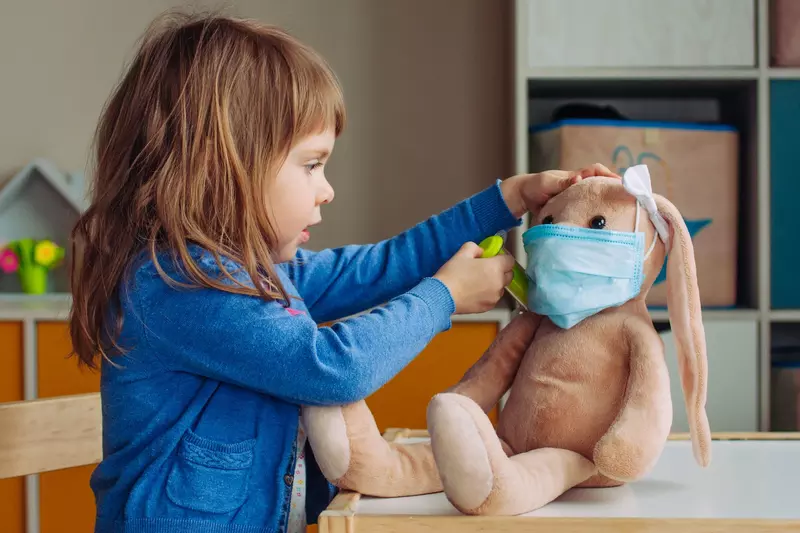- AdventHealth Centra Care

Every year we know it’s coming, but we’re never quite prepared for it. When we see the autumn spice of fall all around us, there’s also something not-so-nice lurking around the corner: flu season.
Our experts urge you to take the flu seriously and do the single most important thing to protect your family this year: don’t delay in getting your children their flu vaccine.
Here we explain why the flu vaccine is so important, especially for children.
The U.S. Centers for Disease Control and Prevention (CDC) and the American Academy of Pediatrics both recommend that children and teens aged 6 months and older get the annual flu vaccine.
Parents of children with asthma and diabetes should take even greater care, as kids affected by chronic conditions can be extremely vulnerable with increased risks for serious secondary complications and even hospitalizations.
The 2020-2021 Flu Season
The flu season is upon us. Flu activity often begins to increase in October and peak between December and February. Some years, however, the season can extend into the early summer months. Currently, the CDC reports low flu activity, but that could change at any moment.
Flu Shot Timing
At AdventHealth, we recommend getting the vaccine as early in the fall as possible – ideally before the flu begins spreading in your community. It takes around two weeks for the vaccine to become effective in the body, so an early start means better protection.
The CDC recommends vaccinating before the end of October, but don’t let that stop you from getting it later in the season if you are unable to do so earlier. A flu shot for your kids in November or December is still better than no flu shot at all.
It’s also important for the whole family to get the flu shot – not just children — especially if there is a baby six months or younger in the household to protect everyone.
Risks of Not Vaccinating
Aside from the misery of having the flu (plus the extreme likelihood of spreading it to other kids), young children run a very high risk of complications. These can range from dehydration to sinus infections to pneumonia and even death.
The flu has primary and secondary complications, and some of them are very severe like including pneumonia or encephalitis. Children’s immune systems are not as mature as adults, which puts them at a higher risk for more serious flu-related complications. If a child has asthma or another chronic condition, their risks are even higher and the chances of hospitalization with flu increase as well.
The flu shot is generally safe. Your child will not catch influenza from the shot, and any potential side effects are usually minor – much milder than a case of the flu.
Symptoms in Children
Flu symptoms can be different for kids. They often experience nausea, vomiting or stomach pain along with the typical flu funk that adults are used to. Symptoms to look for in your children include:
-
Belly pain, nausea or vomiting
-
Body aches
-
Dry cough
-
Extreme fatigue
-
Headaches
-
High-grade fever with chills
One clue that your child has caught the flu versus a common cold is how quickly the illness comes on. Sudden, severe onset of symptoms may indicate flu.
If your child is showing symptoms of the flu, get to his or her pediatrician or urgent care quickly. There is a treatment (Tamiflu) that can reduce the duration of the illness.
Because the flu is so contagious, it’s highly likely that if one person in the household tests positive for the flu, others will as well.
Boosting Flu Prevention
The most important thing to do in addition to the flu vaccine is to make sure your child washes his or her hands frequently, especially before eating and after sneezing, coughing and blowing his or her nose. Teaching your child to cover his or her mouth and nose with a tissue when sneezing or coughing will also help prevent the spread of the virus to others. We also recommend encouraging your children to wear face coverings, especially while in public when social distancing of 6 ft. can’t be maintained.
If you had the flu, it’s still important to get your vaccination so that you are covered for both A and B strains of the virus. The vaccine covers the most prevalent flu strains from the few years prior, so you increase your immunity to several strains by getting the vaccine.
Flu vaccines are here, and now’s a great time to make an appointment to help protect your child. Visit any AdventHealth Centra Care or AdventHealth Centra Care Kids location for a flu shot.



